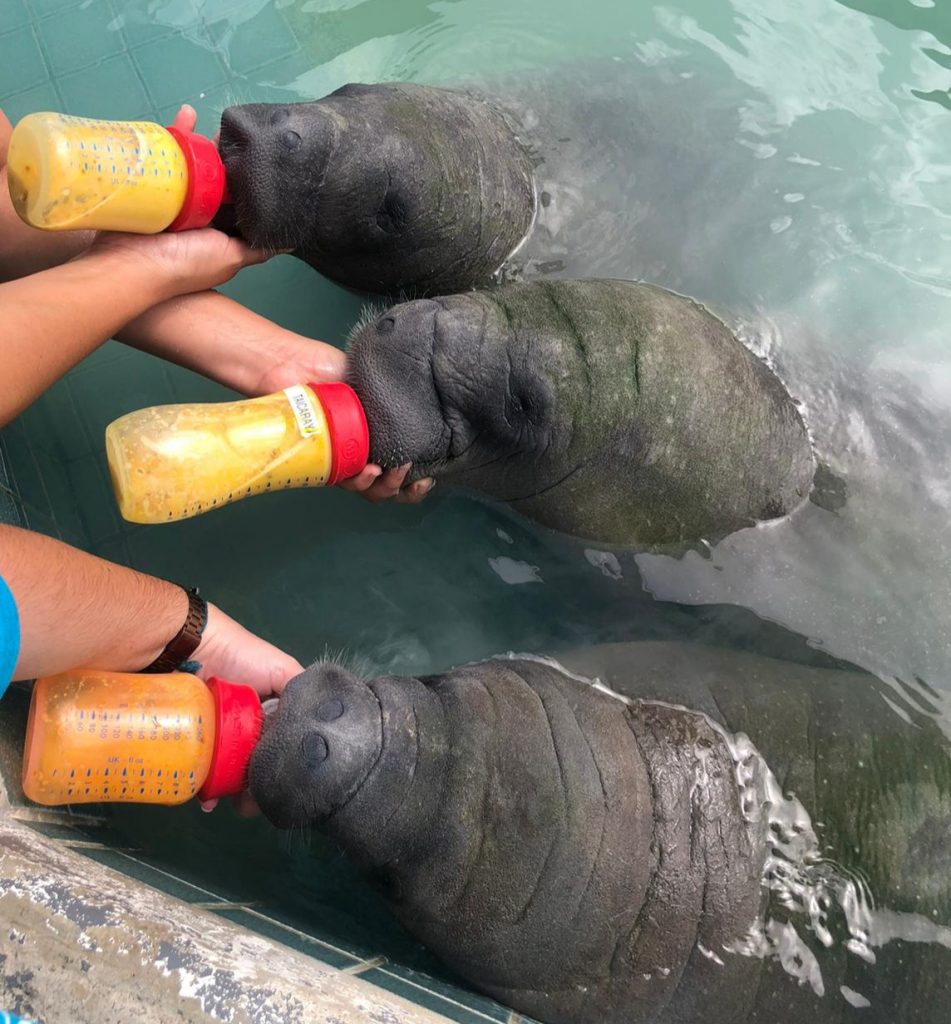
From Texas to
Costa Rica, Mexico, Brazil, Peru, and Venezuela
to Puerto Rico,
The Dallas World Aquarium partners and supports wildlife conservation around the Americas.
The commitment, support and partnership with the Dallas World Aquarium (DWA) makes the Caribbean Manatee Conservation Center’s rescue, rehabilitation, research and community outreach programs possible.
Puerto Rico
Puerto Rico is a Caribbean island part of the United States. Its natural environment is a mixture of a luscious tropical rain forest, mid-island green mountains, and paradisiac white-sand beaches bordered by coral reefs, mangrove, and estuary habitats. It is home to hundreds of endemic species with three terrestrial ecoregions (rain forests, dry forests, and Greater Antilles mangroves). The most iconic of these is the coqui frog and the Puerto Rican parrot, the latter critically endangered. On its coasts, humpback whales mate and give birth every year during the winter months, and endangered manatees, the national mammal of the island, try to survive among threats of coastal development, human encroachment, and rising speed boat and jet-ski traffic. The DWA has partnered in Puerto Rico since 2012, working with the Caribbean Manatee Conservation Center to support their conservation efforts on behalf of manatees, sea turtles, and marine birds.
Caribbean Manatee Conservation Center
Bayamón—Puerto Rico
www.manatipr.org

The Caribbean Manatee Conservation Center is a federally-authorized manatee critical care facility part of the U.S. Manatee Rescue and Rehabilitation Partnership. It is run by the non-profit organization Red Caribeña de Varamientos in conjunction with the Inter American University of Puerto Rico. A team of 12 marine biologists and veterinarians, with the help of over 100 volunteers, direct the conservation efforts not only for endangered manatees but also for sea turtles and marine birds, such as pelicans. These efforts are implemented through four main programs: rescue and stranding response, rehabilitation and veterinary care, population research, and community outreach.
Since the Center’s conception, the Dallas World Aquarium has been a partner in supporting different initiatives of the Center, including research on manatee biology and veterinary care, radiotracking released manatees via satellite monitoring, manatee rescue missions in other Latin American countries, and helping implement community outreach efforts of education and awareness in-situ and ex-situ.
The Center has continued operations through these joint efforts, particularly during the COVID-19 pandemic, and released rehabilitated manatees, sea turtles, and pelicans. Since its conception, the Center has rescued over 400 animals of some 50 species of wildlife, including 15 manatees, with aid provided to over two dozen manatees in Colombia, Mexico, Guyana, Cuba, Panama, and Turks and Caicos Islands. The Center currently cares for two pelicans, two sea turtles, four orphaned manatees, and one adult manatee.
Dallas World Aquarium has had a long-time commitment to manatee conservation through the leadership of its director and CEO, Daryl Richardson. Three decades ago, two rescued manatee calves in Venezuela were imported under emergency permits from the U.S. Fish and Wildlife Service and the Venezuelan Ministry of the Environment (PROFAUNA) to Dallas for rehabilitation. In 2008, DWA responded to requests for help with four rescued manatees near Iquitos, Peru. After the initial response for assistance, the Aquarium decided to get further involved and develop a rescue center in the Peruvian Amazon, creating an iconic rescue, conservation, and education Center for Amazonian wildlife. Their involvement with Caribbean Manatee Conservation Center in Puerto Rico is a natural step in continuing the commitment of the Aquarium and its director to manatee conservation.







